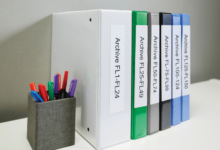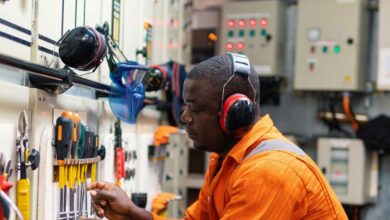Top Pool Maintenance Tips for Summer

Introduction
As summer approaches, there’s nothing more inviting than the crystal-clear waters of a well-maintained swimming pool. However, enjoying a pristine pool throughout the season requires consistent and careful maintenance. Neglecting your pool can lead to cloudy water, algae growth, and potential health risks. This comprehensive guide will provide you with the top pool maintenance tips for summer, ensuring your pool remains a refreshing oasis for you, your family, and your guests.
Understanding the Importance of Regular Pool Maintenance
Proper pool maintenance is essential for several reasons. Not only does it keep the water clean and clear, but it also prolongs the life of your pool equipment and surfaces. Regular maintenance helps prevent the growth of algae and bacteria, ensuring that the water remains safe for swimming. Moreover, it enhances the overall aesthetic appeal of your pool, making it more enjoyable for everyone.
Preparing Your Pool for Summer
Before the heat of summer hits, it’s crucial to prepare your pool. Start by removing any debris that may have accumulated during the off-season. Check the water level and ensure it’s at the right height, as water levels can affect your pool’s circulation and filtration system. Additionally, inspect the pool’s surfaces for any cracks or damages that might need repair. Lastly, clean your pool cover thoroughly before storing it away for the season.
Balancing Pool Water Chemistry
Maintaining balanced water chemistry is vital to ensure your pool water is safe and clean. The key elements to monitor include pH levels, alkalinity, and calcium hardness. The pH level should be between 7.4 and 7.6, while alkalinity should range between 80 to 120 parts per million (ppm). Proper calcium hardness prevents corrosion and scale buildup, and it should be maintained between 200 to 400 ppm. Use a reliable testing kit to check these levels regularly and make adjustments as needed.
Chlorine Levels and Sanitization
Chlorine is essential for keeping your pool water free from harmful bacteria and algae. Regularly test the chlorine levels, aiming to maintain them between 1 to 3 ppm. During hot summer days, chlorine can evaporate quickly, so it’s important to monitor and adjust levels more frequently. Consider using a chlorine stabilizer to protect against the sun’s UV rays, which can degrade chlorine levels.
Using Algaecides and Shock Treatments
Algae growth is a common problem during summer due to warmer water temperatures. To prevent algae, use algaecides as part of your regular pool maintenance routine. Additionally, shock treatments are necessary to eliminate organic contaminants that can build up over time. Shocking your pool once a week, or after heavy usage, will help maintain clear water and prevent algae blooms.
Maintaining the Pool Filter System
Your pool’s filter system plays a crucial role in keeping the water clean by removing debris, dirt, and impurities. Whether you have a sand, cartridge, or diatomaceous earth (DE) filter, it’s important to clean or backwash the filter regularly. Sand filters should be backwashed once the pressure gauge reads 8-10 psi above normal, while cartridge filters need to be cleaned every two to six weeks, depending on usage. DE filters require periodic backwashing and a fresh coat of DE powder.
Skimming and Brushing the Pool
Regular skimming and brushing are essential for keeping your pool free from debris and preventing algae buildup. Skim the surface of your pool daily to remove leaves, insects, and other floating debris. Brushing the walls, steps, and floors of the pool at least once a week helps remove dirt, algae, and any other substances that can cling to surfaces. Pay special attention to corners, crevices, and other areas where algae are likely to grow.
Vacuuming the Pool
Even with regular skimming and brushing, some debris will settle at the bottom of the pool. Vacuuming your pool weekly ensures that dirt, sand, and other particles are removed. For automatic vacuum systems, ensure they’re functioning correctly and clean the filters as needed. If you’re using a manual vacuum, take your time to cover the entire pool floor and brush up any debris that might be stuck.
Managing Pool Water Levels
Maintaining the correct water level is crucial for the efficient operation of your pool’s filtration system. If the water level is too low, the pump may run dry and get damaged. On the other hand, if the water level is too high, the skimmer won’t work properly. During summer, water levels can drop due to evaporation, so be sure to top off the pool as needed. Additionally, after heavy rain, you might need to drain excess water to prevent overflowing.
Keeping an Eye on Pool Equipment
Inspecting your pool equipment regularly helps catch potential problems before they become serious. Check the pump, filter, heater, and other equipment for signs of wear or malfunction. Listen for unusual noises, and make sure everything is operating efficiently. Clean the skimmer and pump baskets weekly to remove debris and prevent clogs. If any equipment seems to be underperforming, it may be time for a professional inspection or repair.
Dealing with Common Pool Issues
Despite your best efforts, you may encounter common pool problems like cloudy water, algae, or pH imbalances during the summer. For cloudy water, check and balance your chemicals, clean your filter, and ensure your pump is running long enough each day. Algae can be treated with shock treatments and algaecides, but prevention through regular maintenance is the best approach. For pH imbalances, adjust the alkalinity and use pH increasers or decreasers as needed.
Testing Pool Water Regularly
Frequent water testing is the backbone of effective pool maintenance. Test your pool water at least twice a week to monitor chemical levels and ensure everything is balanced. If you’re not confident in your testing skills, consider bringing a water sample to a local pool store for professional analysis. Keeping a log of your test results can help you track changes over time and identify any recurring issues.
Optimizing Pool Circulation
Proper circulation ensures that all areas of your pool are treated with chemicals, and it prevents stagnant water where algae can thrive. Run your pool pump for at least 8-12 hours a day during the summer to ensure good circulation. Make sure the jets are angled to create a circular motion in the pool, helping to distribute chemicals evenly and prevent dead spots. Regularly check the pump and filter system to ensure they are functioning efficiently.
The Role of Pool Covers in Maintenance
Using a pool cover can significantly reduce the amount of debris that enters your pool, making maintenance easier. During summer, a solar cover can also help retain heat, reduce water evaporation, and lower your energy costs. While it might be tempting to leave the pool uncovered for easy access, covering the pool when not in use can save you time on cleaning and chemical adjustments.
Protecting Your Pool During a Heatwave
Extreme heat can put additional strain on your pool, leading to faster evaporation, chemical imbalances, and increased algae growth. During a heatwave, monitor your pool water more frequently and adjust chemical levels as needed. Running your pump longer can help maintain circulation and prevent the water from becoming too warm. You may also need to top up the water level more often and shock the pool more frequently to keep it clear.
Maintaining Poolside Areas
A well-maintained pool isn’t just about the water—it also involves taking care of the surrounding areas. Regularly clean the pool deck to prevent dirt and debris from being tracked into the water. Check for loose tiles, pavers, or other hazards that could cause accidents. Additionally, keep poolside furniture and accessories clean and in good repair. A tidy pool area enhances the overall enjoyment of your outdoor space and reduces the chances of debris ending up in the water.
Safety Measures and Precautions
Pool safety is paramount, especially during the busy summer months. Ensure that your pool area is secure with proper fencing and self-closing gates to prevent unauthorized access. Keep lifesaving equipment, like a life ring or shepherd’s crook, readily accessible. Educate family members and guests about pool safety rules, such as no diving in shallow areas and never swimming alone. Having a first aid kit nearby is also a good precaution.
Energy-Efficient Pool Maintenance Tips
With rising energy costs, finding ways to reduce your pool’s energy consumption is beneficial. Use a variable-speed pump, which is more efficient than single-speed models and can save you money in the long run. Consider using a pool cover to reduce heating costs and water evaporation. Installing LED pool lights instead of traditional incandescent bulbs can also help lower your energy bills. Additionally, maintaining your pool equipment regularly ensures it runs efficiently, further reducing energy usage.





